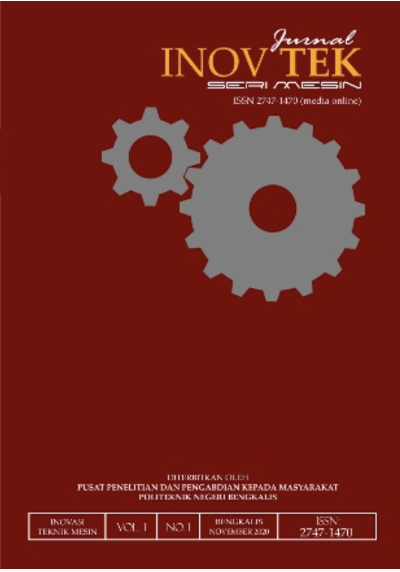Simulation Of Regenerative Braking In The Laksamana V.2 Electric Vehicle
Keywords:
Regenerative Brake, Electric Vehicle, MATLAB-Simulink, Energy EfficiencyAbstract
This paper presents the analysis and simulation of a regenerative braking system for the Laksamana V.2 electric vehicle using MATLAB-Simulink, based on the WLTP Class 1 driving cycle. The study focuses on evaluating the efficiency of the regenerative braking system in recovering kinetic energy during deceleration, with a specific emphasis on its performance at different vehicle speeds. The results demonstrate that the system achieves a maximum energy recovery efficiency of 69.75% at low speeds (10 km/h), with efficiency decreasing as speed increases, primarily due to higher energy losses from aerodynamic drag and rolling resistance. The braking force distribution between the front and rear wheels was found to comply with safety regulations, ensuring vehicle stability during braking while optimizing energy recovery. Furthermore, the regenerative braking system contributes to extending the vehicle’s range and enhancing battery health by reducing the frequency of external charging. The findings highlight the importance of optimizing regenerative braking for urban conditions, where frequent braking events maximize energy recovery. Future research will focus on validating these results in real-world scenarios, integrating other energy recovery technologies, and further optimizing performance at higher speeds.




